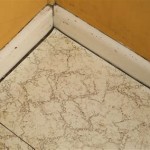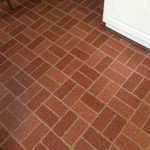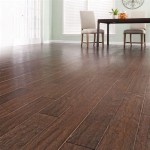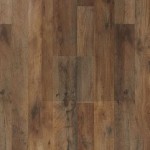Slate Flooring: Weighing the Pros and Cons
Slate flooring presents a distinctive and durable option for homeowners seeking to enhance the aesthetic appeal and longevity of their living spaces. This natural stone, formed from compressed sedimentary rock, offers a unique texture and color variation that can elevate the visual character of any room. However, like all flooring materials, slate possesses both advantages and disadvantages that must be carefully considered before making a final decision regarding its suitability for a particular application. This article will provide a comprehensive overview of the pros and cons of slate flooring, enabling informed decision-making.
Aesthetic Appeal and Natural Variation
One of the primary advantages of slate flooring lies in its inherent aesthetic appeal. Slate exhibits a naturally cleft surface, resulting in a textured, non-slip finish that is both visually appealing and functionally beneficial. The color palette of slate is diverse, ranging from deep blacks and grays to vibrant greens, purples, and rust tones. This natural variation ensures that each slate tile is unique, contributing to a one-of-a-kind flooring design. The unrepeatable patterns and subtle differences between tiles create a sense of depth and visual interest that is difficult to replicate with manufactured materials.
Furthermore, the natural variation within slate allows it to complement a wide range of interior design styles. Whether the homeowner is aiming for a rustic, contemporary, or traditional aesthetic, slate can be incorporated effectively. Its natural colors and textures blend seamlessly with wood, metal, and other natural materials, offering design flexibility. The ability to create unique patterns and layouts with slate tiles further enhances its aesthetic appeal. Different sizes, shapes, and colors of slate can be combined to achieve custom designs that reflect the homeowner's individual preferences.
The matte finish characteristic of slate flooring also contributes to its aesthetic appeal. Unlike polished surfaces, which can be prone to glare and reflections, slate offers a softer, more subtle visual texture. This makes it particularly well-suited for areas with ample natural light, as it will not create harsh reflections. The matte finish also helps to conceal minor scratches and imperfections, maintaining a relatively consistent appearance over time.
Durability and Longevity
Slate is renowned for its exceptional durability and longevity. As a natural stone, it is inherently resistant to wear and tear, making it an ideal choice for high-traffic areas such as entryways, kitchens, and hallways. Slate is capable of withstanding significant weight and impact without cracking or chipping, ensuring that the flooring will maintain its structural integrity for many years. This inherent strength makes it a particularly suitable option for homes with children, pets, or frequent visitors.
The layered composition of slate contributes to its durability. The tightly packed layers of minerals provide resistance to abrasion, scratching, and staining. Unlike softer flooring materials, such as wood or linoleum, slate is unlikely to show signs of wear from everyday use. This resilience makes it a cost-effective flooring option over the long term, as it requires less frequent replacement or repair. The low maintenance requirements also contribute to its overall cost-effectiveness.
Slate is also resistant to moisture, making it an ideal choice for bathrooms, kitchens, and other areas prone to water exposure. Its non-porous surface prevents water from penetrating the stone, minimizing the risk of water damage, mold growth, and mildew. This inherent moisture resistance makes slate a more hygienic flooring option compared to materials that can harbor bacteria and mold.
The longevity of slate flooring is further enhanced by its resistance to fading. Unlike synthetic materials that can fade or discolor over time, slate retains its natural color and texture even after years of exposure to sunlight. This colorfastness ensures that the flooring will maintain its aesthetic appeal for the duration of its lifespan.
Maintenance and Cleaning Requirements
While generally durable, slate flooring does require proper maintenance to preserve its appearance and longevity. Although resistant to staining, slate can be susceptible to certain types of spills, particularly acidic liquids such as vinegar or citrus juice. Prompt cleaning of spills is essential to prevent staining or etching of the stone surface.
Regular cleaning of slate flooring typically involves sweeping or vacuuming to remove loose dirt and debris. This prevents the accumulation of abrasive particles that can scratch or dull the surface over time. Damp mopping with a neutral pH cleaner is also recommended to maintain the cleanliness of the flooring. Harsh chemicals or abrasive cleaners should be avoided, as they can damage the sealant or discolor the stone.
Sealing is an essential aspect of slate flooring maintenance. A sealant creates a protective barrier that repels water, stains, and dirt, making the flooring easier to clean and protecting it from damage. The frequency of sealing will depend on the type of sealant used and the level of foot traffic in the area. Generally, slate flooring should be resealed every one to two years to maintain its optimal condition.
Although slate is relatively resistant to scratches, it is possible for the surface to become scratched or chipped over time, especially in high-traffic areas. Minor scratches can often be buffed out with a polishing compound specifically designed for natural stone. More severe damage may require professional repair or replacement of individual tiles.
Cost Considerations and Installation Complexity
The cost of slate flooring can be a significant consideration for homeowners. Slate is generally more expensive than other flooring materials, such as vinyl or laminate. The cost of the material itself can vary depending on the quality, size, and color of the slate tiles. Installation costs can also be higher, as slate requires specialized tools and expertise to install properly.
The installation of slate flooring is a labor-intensive process that requires careful attention to detail. The subfloor must be properly prepared to ensure a level and stable surface. Slate tiles are typically set in a mortar bed, which requires precise mixing and application techniques. Grouting between the tiles is also an important step, as it prevents water from seeping underneath the flooring and provides structural support.
Due to the weight and density of slate, professional installation is often recommended. Experienced installers have the necessary skills and equipment to ensure that the flooring is installed correctly and will last for many years. DIY installation can be challenging, particularly for homeowners with limited experience in tile work. Improper installation can lead to a variety of problems, such as cracked tiles, uneven surfaces, and water damage.
Despite the higher initial cost, the long-term value of slate flooring can offset the expense. Its durability, longevity, and low maintenance requirements make it a cost-effective choice over the lifespan of the flooring. Furthermore, the unique aesthetic appeal of slate can increase the resale value of a home.
Coldness Factor and Comfort Underfoot
One potential drawback of slate flooring is its tendency to feel cold underfoot, particularly during cooler months. As a natural stone, slate has a high thermal conductivity, meaning it readily absorbs and transfers heat. This can make it feel uncomfortably cold to walk on, especially in areas with poor insulation.
To mitigate the coldness factor, several solutions can be implemented. One option is to install radiant floor heating underneath the slate. Radiant heating systems provide a consistent and comfortable source of warmth, making the flooring feel much more pleasant to walk on. Another option is to use area rugs or runners to provide insulation and cushioning in areas where people frequently walk.
The hardness of slate can also be a concern for some homeowners. Walking or standing on hard flooring for extended periods can be tiring or uncomfortable. The use of cushioned mats or rugs can help to alleviate this discomfort, particularly in areas such as the kitchen where people spend a significant amount of time standing.
The textured surface of slate can also affect its comfort underfoot. While the natural cleft surface provides a non-slip finish, it can also feel rough or uneven to walk on. The selection of smoother slate tiles can help to minimize this effect, although it may also reduce the non-slip properties of the flooring.
Variations in Quality and Grading
The quality of slate flooring can vary significantly depending on the source and grading of the stone. Higher-quality slate is typically more uniform in color and texture, and it is less likely to contain imperfections or flaws. Lower-quality slate may exhibit greater variations in color and texture, and it may be more prone to cracking or chipping.
It is important to carefully inspect slate tiles before purchasing them to ensure that they meet the desired quality standards. Check for any visible cracks, chips, or imperfections. Pay attention to the color and texture of the tiles to ensure that they are consistent with the overall design scheme. Purchasing slate from a reputable supplier can help to ensure that you are getting a high-quality product.
The grading of slate refers to the quality and consistency of the stone. Different grading systems are used by different manufacturers, so it is important to understand the specific grading system used by the supplier. Higher grades of slate typically have fewer imperfections and more consistent color and texture.
The thickness of slate tiles can also affect their quality and durability. Thicker tiles are generally more resistant to cracking and chipping, and they are better able to withstand heavy foot traffic. Typically, slate tiles for flooring should be at least 1/2 inch thick.

Pro Cons Of Natural Slate Flooring Claude Browns

Slate Flooring Review Pros And Cons Complete Guide 2024

Slate Tile Flooring Features Pros And Cons The Constructor

Pros And Cons Of Slate Flooring Homeadvisor

Slate Tile Flooring Pros And Cons Stone Pe Inc

Slate Tile Vs Travertine Porcelain Flooring Tiles Comparison Chart

Stone Flooring Pros Cons Tile Urban Customs

How To Install A Slate Tile The Constructor

Slate Flooring Pros Cons Types Installation Method

Slate Flooring Pros Cons Types Installation Method
Related Posts








